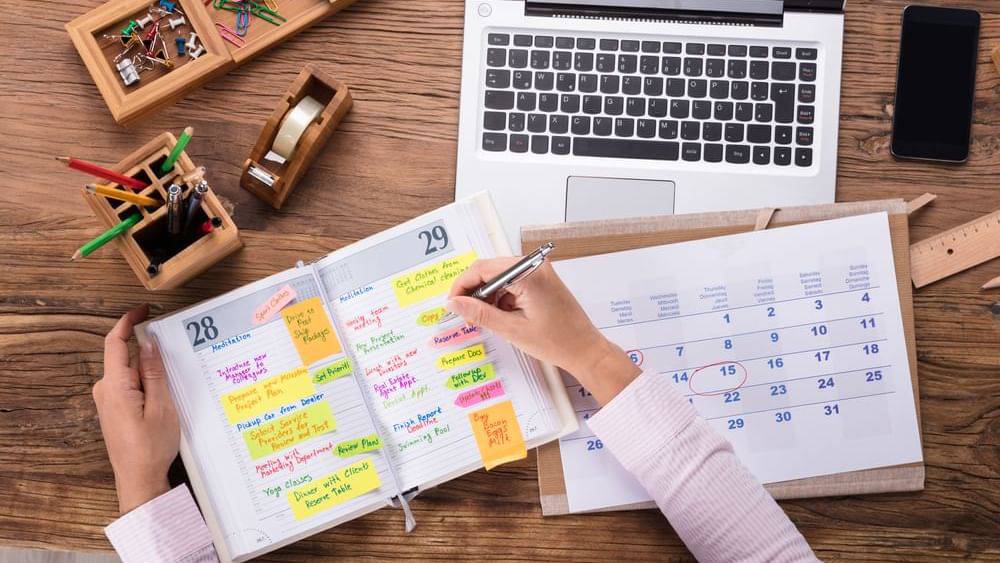
How to Create the Perfect Study Routine for Self-Learning
In today’s fast-paced world, self-learning has emerged as a powerful tool for personal and professional growth. Self-directed education offers freedom and flexibility, but it can make it hard to stay focused and consistent. Crafting the perfect study routine is essential for self-learners who wish to make the most of their educational journey. This blog will look at how to create a study schedule. It will share important time management tips and give ideas for planning your self-education journey.
Key Benefits of a Well-Structured Study Routine

1. Enhanced Focus and Productivity
One of the primary benefits of a structured study routine is increased focus. Setting specific time slots for subjects helps reduce distractions. This creates a space that supports deep learning. A good schedule helps you set aside focused time for studying. This can boost your understanding and memory of the material.
2. Improved Time Management for Learners
Effective time management is crucial for self-learners who often juggle multiple commitments. A well-planned study routine helps you use your time wisely. This way, you can tackle all the important topics without feeling stressed. Focus on your tasks and set achievable goals. This way, you can make steady progress on your self-education journey.
3. Consistency and Discipline
Consistency is key to mastering any subject. A regular study routine helps instil discipline, making it easier to stick to your learning goals. With time, this consistency creates momentum. It makes learning more enjoyable and rewarding. By establishing a routine, you create a habit of learning that becomes an integral part of your daily life.
4. Reduced Stress and Anxiety
Uncertainty and lack of direction can lead to stress and anxiety for self-learners. A good study schedule gives you clear guidance. It also lightens your mental load by removing the stress of choosing what to study next. By having a clear plan in place, you can approach your studies with confidence and focus, knowing that you are on the right track.
Step-by-Step Guide to Crafting the Perfect Study Routine

1. Assess Your Goals and Priorities
Begin by identifying your learning objectives. What do you hope to achieve through self-learning? Are you aiming to master a new skill, prepare for an exam, or explore a new field of interest? Clearly defining your goals will help you determine the subjects and topics that require your attention.
Next, prioritise your goals based on their importance and urgency. This will help you use your time and resources wisely. It ensures you focus on the key areas of your self-education journey.
2. Evaluate Your Learning Style
Each learner is unique. Knowing your preferred learning style can greatly affect your study routine. Are you a visual learner who benefits from diagrams and videos, or do you prefer reading and taking notes? Perhaps you learn best through hands-on experience or group discussions. Adjust your study routine to fit your learning style. Use methods and resources that boost your understanding and help you remember better.
3. Design Your Study Schedule
With your goals and learning style in mind, it’s time to create your study schedule. Start by determining the amount of time you can realistically dedicate to self-learning each day or week. Think about your current commitments like work, family, and hobbies. Find time slots you can set aside for studying.
When designing your schedule, aim for a balance between study sessions and breaks. Research shows that short, focused study sessions with regular breaks can boost concentration and help avoid burnout. The Pomodoro Technique uses 25-minute study sessions with 5-minute breaks. It’s a popular way to stay focused and productive.
4. Set Realistic Goals and Milestones
Setting achievable goals and milestones is crucial for maintaining motivation and tracking progress. Break down your learning objectives into smaller, manageable tasks, and set deadlines for each task. This approach makes your goals easier to reach. It also gives you a feeling of success as you finish each milestone.
Regularly review and adjust your goals based on your progress and any changes in your priorities. Flexibility is key in self-directed learning. It helps you adjust to new challenges and seize opportunities.
5. Create a Conducive Learning Environment
Your study environment plays a significant role in your ability to focus and retain information. Pick a quiet, comfy spot without distractions. Gather what you need, like books, stationery, and a computer. Make sure your study area is bright and comfortable. Good lighting and an ergonomic setup help you focus better.
Think about adding things that improve your learning, like background music, plants, or motivational quotes. Making your study space personal can make it feel welcoming and inspiring. This can help you spend more time on your self-education journey.
Additional Expert Tips & Common Mistakes to Avoid
1. Embrace Technology and Online Resources
Incorporate technology into your study routine to access a wealth of online resources and tools. Technology boosts your learning and simplifies studying. Platforms like Coursera and Khan Academy help you learn. Apps such as Evernote and Trello keep you organised and productive. Be aware of digital distractions. Set boundaries so technology helps you learn instead of distracting you.
2. Avoid Overloading Your Schedule
Ambition is great, but cramming too much into your study schedule can cause burnout and lower your motivation. Be realistic about how much time and energy you can spend on self-learning. Also, avoid cramming too many subjects into your schedule. Allow time for relaxation and leisure activities to maintain a healthy work-life balance.
3. Regularly Review and Adjust Your Routine
Your study routine should be dynamic and adaptable to changes in your goals, priorities, and circumstances. Check your progress often. Change things up if needed. This way, your routine stays effective and meets your learning goals. Flexibility is vital for staying motivated and reaching long-term success in your self-education journey.
Advanced Insights and Expert Recommendations
1. Incorporate Active Learning Techniques
Active learning means getting involved with the material. You can do this through discussions, solving problems, and teaching others. Use active learning techniques in your study routine. This will help you understand and remember the material better. For example, participate in online forums or study groups, create mind maps, or explain concepts to a friend or family member.
2. Seek Feedback and Mentorship
Self-learning can feel lonely. But getting feedback and mentorship offers great insights and guidance. Talk to experts or peers in your field. This helps you see new viewpoints and get helpful feedback on your progress. Mentorship can give you motivation and accountability. This helps you stay focused on your learning goals.
3. Explore Cross-Disciplinary Learning
Expand your knowledge and skills by exploring related fields or disciplines. Cross-disciplinary learning helps us understand complex topics better. It also boosts creativity and innovation. If you study computer science, try looking into areas like mathematics, psychology, or design. This can help you gain a broader view.
Mastering Self-Learning: How to Create the Perfect Study Routine

Creating the perfect study routine for self-learning requires careful planning, discipline, and adaptability. Understanding the benefits of a good routine helps you assess your goals and learning style. You can boost your self-education journey and hit your learning goals with smart strategies.
The secret to successful self-learning is to be consistent, flexible, and open to new challenges and opportunities. As you start your self-education journey, reflect on your progress. Celebrate what you’ve achieved, and always look for ways to improve and grow.
Are you ready to take control of your learning journey and create a study routine that works for you? Today, take a moment to review your goals, create your schedule, and commit to lifelong learning and self-improvement.